- Enquire Now
- About SI-Canada
- Toronto Office
- All Global Offices
- Program Search
- Free Service
- Top Universities Service
- Visa Service
- Canada Application Process
- Canadian Education System
- Canada University Rankings 2024
- All Canada Study Information
- University and College Profiles
- University and College Subjects
- Canada Study Options
- Study English


Book your Free Consultation
A member of the SI-Canada team will be in touch within 24 hours to arrange your initial consultation with one of our education experts.
Canada Personal Statement

- Canada Study Info
- Personal Statement
Canada University Personal Statement
Writing a personal statement to a canadian university.
When applying for higher studies in Canada, one of the essential components of the application is the personal statement. This important document provides an opportunity for you to showcase your motivations, aspirations, experiences, and suitability for the program or institution you are applying to. It is a chance to demonstrate your unique qualities and stand out among other applicants.
What do I include in my Personal Statement?
In a personal statement, an international student writes about what they hope to achieve on a university course , what they hope to do after the course and why they are applying to this particular university. It is your first chance to show a demonstrable passion and understanding of your chosen subject away from exam results.
In Canada, a statement of purpose is only required for undergraduate and postgraduate university applications. Otherwise, it is only needed for visa applications at all other study levels.
- Your career aspirations
- How you became interested in studying the subject
- What, if any, relevant work experience you have undertaken that is related to the course or subject
- What aspects of your previous education you have found the most interesting
- What attracted you to the particular university
- Other relevant academic interests and passions which display positive character and personality
Genuine experiences in extra-curricular clubs, work experience or knowledge around a subject are much more likely to make your personal statement stand out, while admissions officers are also looking for positive evidence of your character, which will make you a productive member of the university.
How long should my Personal Statement be?
The length of a personal statement varies depending on the university, but generally, the average length for an undergraduate application is between 300-600 words, around one side of A4 paper or a maximum of 47 lines. Certain postgraduate programmes may require a 1000-word personal statement, but this will be clearly specified.
Try not to go over the given character limit, as admissions officers have many personal statements to go through, and a clearly written and concise personal statement is more likely to stand out.
What are common Personal Statement errors?
The personal statement serves as one of your first impressions to the university, and in order to make a good impression on the admissions committee, you must make sure that the document is error-free in all aspects. Look out for the following points and make the necessary changes before sending your personal statement to the university:
- The personal statement is too short/long
- The personal statement does not include important information/includes negative information
- The personal statement has a confusing structure
It is also important not to lie about any aspect of your personal life and education history or even exaggerate. Admissions officers will question you about almost all aspects of your application and will be able to see through any lies.
Tips for Writing a Personal Statement
- Express a passion for your subject
- Start the statement strongly to grab an admission officer's attention
- Link outside interests and passions to your course
- Be honest, but don’t include negative information
- Don’t attempt to sound too clever
- Don’t leave it until the last minute; prepare ahead of the deadline
- Have friends and family proofread it
- Don’t duplicate material from your CV/resume
In terms of presentation, attempt to create five clear paragraphs of text in a clear font such as Arial or Times New Roman, with a maximum size of 12.
Personal Statement Editing
Once you have completed your personal statement, arrange a free consultation with SI-Canada. We can suggest edits and ensure the English is clear and grammatically correct.

Increase your chances of success when applying
SI-Canada specializes in selecting the right Canadian university or college for international students by reviewing your academic background, discussing your career goals and helping you apply. Our application services can help you achieve your dream of studying in Canada.
16 July 2024
08 july 2024, 24 june 2024, 28 september 2024, 5 october 2024, 7 october 2024, study in canada blog, studying in canada, why study in vancouver as an international student.
- Canadian Culture, Customs, Traditions, and Facts for International Students
- 10 Reasons To Study in Canada as an International Student
- The Advantages of Studying in Canada vs Studying at Home
Canadian Degrees
Studying ai at the university of alberta.
- Why Study a Master's in Canada?
- What Exams Are Required to Study in Canada?
- Canada Degrees with the Best Job Prospects
Canadian Universities
Why study at the university of alberta.
- Five Reasons to Study at Toronto Metropolitan University
- Why Choose Acadia University as an International Student?
- Six Reasons to Choose Fanshawe College in Canada
" Everything was explained well to me by Vidushi. There was a 100% transparency in everything and Vidushi was highly responsive throughout the process making it smooth and hassle free for me. Rahul from the Visa team also was really patient in the entire process and made sure I understood and get things done timely. "
Amanpreet Kaur International Business Management (May 2024 intake)

Popular Institutions Across Canada

©2024 SI-Canada | All rights reserved | Privacy Policy

Main navigation
- Students & Alumni
- Faculty & Staff
- Publications
- November Career Month
- Service Eligibility
- Explore Careers
- Internships
- Job Search Skills
- Is Grad School for Me?
- Study Programs
- Standardized Tests
Personal Statements
- Reference and Recommendation Letters
- Financing Your Studies
- Medical School Interviews
- Masters,PhDs and Post-Docs
- Services and Programs
- Student Groups
- Resource Centre
- Policies for Students
Whether you are writing a Personal Statement, Letter of Intent, Biographical Sketch, or other type of application for a graduate program, professional school, fellowship/scholarship/award, or employment opportunity, CaPS can assist you.
Before taking advantage of the resources below, we strongly recommend you write the first draft on your own, according to the specifications provided by the institution or organization. Your style of writing in the letter is a reflection of your character and personality, and you would not want that tainted by following a textbook format.
Once you have given your letter a first attempt (and there will be many to follow), take advantage of the following resources to ensure it is at its best upon submission.
To have your personal statements reviewed, please make an appointment: 514-398-3304.
Personal Statement Samples

- Writing the Personal Statement | Examples (Perdue Online Writing Lab)
- Sample personals statements, by subject (Studential.com)
- Personal Statement Books (available in the McGill Library)
Graduate School Research Statements
- McGill - Tips for writing a research proposal
- Graduate school applications: writing a research statement (Purdue OWL)
Graduate School Interviews
Consult the following websites for pre-selection interview questions and answers.
- University interviews: Top answers & insider tips (This book is available at CaPS)
- Grad school interview preparation and answers to questions (MastersDegree.net)
- Top 10 graduate school interview questions (GradSchools.com)
Please note that CaPS and McGill do not endorse any particular websites/services; the listing is for your information only.
Department and university information, career planning service - downtown campus, career planning service - macdonald campus.
- Column 1 - Quick Links
- Faculty of Engineering - Engineering Career Centre
- Faculty of Management Career Services
- Faculty of Law Career Development Office
- Faculty of Medicine Career Planning Office
- Internship Offices Network
- Student Wellness Hub
- International Student Services
- McGill Writing Centre
- Scholarships and Student Aid
- Student Accessibility & Achievement
- Student Services
- Quiz: Find Your Program
- Browse Program Categories
- Scholarships
- Student Housing
- Job Opportunities
- Virtual Tours
How to Write a Personal Statement for Admission to Your First-Choice Program
Grades aren't everything to registrars. effectively telling your story is just as important..

What is a personal statement?
A personal statement is a document some universities use to evaluate your suitability for admission. Sometimes the personal statement is used only for admission, and sometimes it's also used to assess your qualification for scholarships (so the purpose is often twofold).
Some personal statements (sometimes referred to as 'personal profiles' or other names) are required for admission, and some may be optional. For example, the Personal Profile is required for admission to many programs at the University of British Columbia (UBC).
Admissions personal statements are common in the United States. Although they're less common in Canada, more and more Canadian universities are starting to use personal statements for admission and scholarships, and I predict this trend towards a more "holistic" admissions process will continue to grow.
Why use a personal statement?
The rationale behind using the personal statement varies, but basically it provides another way for universities to evaluate your suitability as an applicant beyond your academics. Statements are used quite often at universities where admission is competitive, as a way to differentiate well-qualified applicants.
For example, in programs like Queen's Commerce , McMaster Health Sciences , and Waterloo Engineering , most of the applicants have averages at 90% or above, so the personal statement provides another way to choose from so many qualified students. Some programs may also use a video interview (in addition to the personal statement) as another method of evaluation.
What are schools looking for in a personal statement?
The key information varies according to the statement.
For personal statements in supplemental applications for highly competitive programs, you should specifically demonstrate your skills and personal qualities , and how they align with that particular program.
Generally speaking, though, what most personal statements have in common is they want you to demonstrate self-knowledge, and to align your interests, skills, and personal qualities to the program or university in some way . Schools will often ask about what you've learned through your academic and non-academic experiences. It's vital that you do some self-reflection before writing your statement so you can communicate their best learning experiences (this is part of what I help students to do). You want to draw connections between your experiences and the education you expect to receive.
Personal statements are also used to gauge your community involvement and ability to manage time . If you've been quite involved with your community, for example, through volunteer activities, and you've still maintained a 90%+ average, it demonstrates that you can balance academics and extra-curricular activities, which makes you an attractive candidate for any school.
Further, a history of involvement in high school increases the likelihood of continued involvement in university. That's exactly what the university is looking for: a solid student who will become a part of the campus community and make contributions to it. Schools aren't as interested in students who will only leave their dorm room to go to class.
More information and next steps
UBC provides a great description of what a personal statement is, and tips for how to complete it. Watch the video on the UBC Personal Profile page. Although the information is specific to UBC, it's general enough to describe how to complete most personal profiles .
And remember the golden rule of writing: revise ! Never send out your first draft. Once you've got a personal statement written, give it a few days, then return to it and make some edits. Show your draft to a trusted friend or loved one for feedback. This means you'll need to leave time for revision, so don't leave your statement til the last minute!
Janet MacDonald is a Scholarship Coach at mycampusGPS . She teaches students how to prepare their best scholarship applications through one-to-one coaching and workshops. She also wrote the guide "How to Find and Win Scholarships in Canada." Janet's blog is one of the top education blogs in Canada.
Visit mycampusGPS
account_balance More About This School
Discover....
- Helpful Resources
- Life in Canada
- Paying for School
- Graduate School
- Student Life
- School News
- About Canada
Subscribe to our newsletter
Trending_up trending articles.
- New Pathway to Permanent Residency (PR) for French-Speaking International Students By StudyinCanada Team
- Exploring Canada: Must See Destinations in Ontario By King's University College
- Exploring Career Pathways in Finance and Sustainability By University of Waterloo
- Why You Should Volunteer at Centennial College By Centennial College
- How to Create a Budget (and Stick to It!) By Tess Campbell
- About StudyinCanada.com
- Meet the Team
- Our Partners
- Privacy Policy
- The SchoolFinder Group
SchoolFinder.com
ScholarshipsCanada.com
- GradSchoolFinder.com
- Career-College.com
- LanguageSchoolFinder.com
- Books4Exchange.com
- SchoolFinderGroup.com
- Let's Connect
- Advertise with us
- School Administrator
Your StudyinCanada login gets you access to the whole platform!
Get matched to schools and programs, request information and learn more about career paths.
Get instantly matched to scholarships, receive deadline alerts, and find advice on scholarship applications.
Your browser does not have JavaScript enabled. Please enable JavaScript to access StudyinCanada.com. Feel free to contact us at [email protected] if you continue to experience technical difficulties.

How to write a personal statement
10 Tips for Writing a Strong Personal Statement
Personal Statement FAQ
Support resources for writing a strong personal statement

Keele, Glendon and Markham Campus Contact (416) 736-2100 Campus Maps
- Community Safety
- Privacy & Legal
- Accessibility
Peter A Allard School of Law
Audience selector.
- Current Students
- Future Students
- Faculty & Staff
6 Tips for Writing a Great Personal Statement

Sep 28, 2022
As part of your JD application to Allard Law, most applicants – those applying under the General Category – will need to submit a personal statement. The personal statement is your opportunity to present us with a clear picture of who are, what’s important to you, and why you’re interested in Allard Law.
There isn’t a set of “right answers” and each person’s unique circumstances will shape their personal statement. Use the tips below to help guide you.
The Personal Statement Questions for General Category Applicants
- Tell us about yourself and why you want to study Law. How has your past education, employment, extracurricular activities and/or other experiences prepared you for the study of law? (Maximum 500 words.)
- Drawing from personal experience, tell us about a time that you changed your mind about something or someone, and what you learned from that experience. (Changes from year to year. Maximum 400 words.)
- Tell us about how equity and diversity have mattered in your life. (Maximum 400 words.)
Tips for Writing a Great JD Application Personal Statement
- Answer the questions. It can be easy to get carried away with your response and forget about what was being asked. Read the questions carefully and don’t forget to circle back to them.
- Tell us something new. Find a way to answer the questions in interesting and compelling ways by pulling from past experiences that are unique to you.
- Use critical reflection. When revisiting your personal experiences, think about what happened and note things that you would do differently or that you were happy about in the end.
- Provide specific examples. We’re eager to read about how you are a great public speaker, or a highly organized and focused individual, or a natural leader, but it’s not enough to simply exclaim that you possess a certain skill or ability; back it up with evidence. Talk about how you have used these skills and how will you continue to use them.
- Relate things back to Allard Law. We’re interested in knowing why think you would be a good fit for Allard Law. Research the school and reflect on why you want you want to study here.
- Be honest. Focus on telling us about who you are rather than what you think we want to hear.

Join one of Canada's Leading Law Schools
Our diverse and innovative curriculum offers a first-rate legal education that balances traditional areas of practice with emerging fields of specialization. This, combined with a comprehensive experiential learning program and a supportive community of faculty, students and staff (including an on-site student well-being counsellor) makes the Allard School of Law a place to be inspired, follow your passions and make a difference in the community and beyond.
Learn more about the JD program at Allard Law
- Allard School of Law
Share this Post

The Peter A. Allard School of Law is recognized as one of the leading law schools in Canada, and has a reputation worldwide for innovative research, inspiring teachers, and outstanding graduates.
Other Posts You May Be Interested In

Allard Law students and alumni set to take the stage for The Lawyer Show
Tomorrow, lawyers from across Vancouver are taking the stage for The Lawyer Show. Allard Law alum Mandana Namazi and law student James Blackwood took the time to discuss their upcoming performance of Into the Woods.

New Allard Law awards and scholarships to support IBPOC students
Twelve new awards have been created to support Allard Law students who identify as Indigenous, Black or as a person of colour (IBPOC). Learn more about the new awards and other funding opportunities for new and continuing Allard Law students.
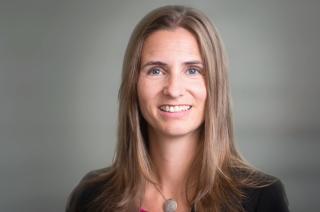
From costume to courtroom: Robin Gage’s journey in law
As a child, Robin Gage (LLB ’01) wasn’t entirely sure what a lawyer did, but she knew she wanted to be one. Today, Robin’s legal practice is driven by a passion for equality and social justice. As Managing Partner at Arvay Finlay, she focuses on areas of public law including environmental, Aboriginal, human rights, administrative and employment law.
Tips | Personal Statement
Personal statements are a part of the application package to many professional and graduate school programs. Sometimes they respond to a specific question, but often the questions are open-ended and vary in length requirements ranging from as little as 250 words to more than two pages. They are also called letters of intent, personal essays, statements of purpose, or application essays.
1. Why Do Schools Request Them?
Personal statements are an opportunity for you to present yourself to the application committee. A strong personal statement will not make up for a weak application, but may be a deciding factor to a committee in the final selection process. It should reflect the skills requested by the program such as communication, analytical, organizational or problem-solving skills. It is also an opportunity for you to show the committee that you have the ability and motivation to succeed in the field. Your personal statement should go beyond what you have already covered in your application. The most important thing to remember about writing personal statements is that they should reflect your uniqueness by highlighting your most pertinent experiences.
TIP: Pay attention to your audience (committee) throughout the statement. Remember that your audience consists of professionals who are experts in their fields. Avoid making self-important and grandiose statements about the nature of the field. Do not tell them what they already know! Below are points on how to prepare your personal statement.
2. Start Early and Research
Read the instructions carefully for each school. Selection committees receive numerous applications. Tailored applications will speak to them much more strongly than applications that are generic.
- Research the institution to understand the culture and vision.
- Research the department to know their research strengths and their faculty’s area of expertise.
- For thesis-based programs, include information about possible professors you would like as supervisors and why you are interested in that person specifically.
- Explore their website and, if possible, visit the campus in person.
- Talk to the admissions officers directly either at their office or attend the Professional Schools Fair held on campus.
- Register for our Personal Statement workshop on CLNx to help get you started.
If you cannot attend the workshop, complete the Personal Statement E-Module .
Once you have completed the workshop or e-module, book an appointment with a Career Counselor to have it critiqued. We do not edit your work but will identify areas that are weak or need further clarification. Critiques (personal statement or CV) are limited to a maximum of 3 appointments per semester. We offer critiques online or in person.
3. Know Yourself
Your statement will address your strengths and fit for their program. If you need assistance identifying your skills, meet with a Career Counsellor or check out the numerous resources available at the Career Centre. Talk to your family and friends as they can offer a unique perspective on your skills and abilities. If possible, discuss your options with a professor or teaching assistant. They will be able to speak to your strengths with respect to the discipline you wish to study.
4. Brainstorm
Begin by spending some time reflecting on your life and experiences. Do not make any judgments or edit your thoughts at this point. Possible questions for you to consider are:
- What experiences or education made me want to pursue further studies?
- When did I become interested in this field?
- What appeals to me about the program — what is unique about it?
- What can I bring to this area of study — my unique perspective?
- What do I plan to do once I finish my studies — my long-term goals?
5. Write Your First Draft
Make sure your first paragraph is engaging and has a specific thesis statement or a marketing pitch. Do not just say what you think the committee wants to hear, but speak from the heart. Be confident and positive — it’s not always what you say but how you say it. They are not looking for your life history; focus on specific experiences and achievements that substantiate your marketing pitch.
Always keep in mind the audience who will be reading this document. Professional schools have a different focus than master's or PhD programs. When you finish the draft, set it aside for a few days and then get back to it with a fresh perspective.
After taking a break, come back to your draft and consider these questions:
- Did I answer the question or questions as specified in the application?
- Does it reflect the real me?
- Does it include any controversial subjects, experiences, opinions, or politics?
- Does it rely on clichés or quotes to make my point?
- Have I chosen the right key experiences to highlight? Does it allow the reader to draw conclusions from the evidence that I have provided?
- Am I being repetitive?
- Does the document reflect strong interest in the program?
- Have I used the pronoun “I” too much?
If asked about undergraduate research projects:
- List projects in order of interest.
- Use working titles.
- Mention name of professor and/or supervisor.
- Explain relevance of the research to the program and identify applicable skills.
Remember that a personal statement should:
- Demonstrate how you are a good fit for the program
- Be specific and persuasive. Document and support your conclusions with examples or draw conclusions from individual experience. It should NOT be a catalogue of achievements. The statement is far more than a resume.
- Avoid lecturing the reader. For example, you should avoid making a statement such as "Communication skills are important in this field." Graduate admissions committee members know this and are not there to learn about the field from the applicant. If you are asked about your understanding of the field, write about how your understanding of the field has shaped your career goals or challenged you.
Words and phrases to avoid without an explanation:
- significant
- interesting
- challenging
- satisfying/satisfaction
- exciting/excited
- enjoyable/enjoy
- appealing to me
- appealing aspect
- it's important
- I can contribute
- meant a lot to me
- stimulating
- helping people
- I like helping people
(Adapted from the Career Centre website of the University of California, Berkeley)
Ask several people to review your personal statement including your professors (especially if they belong to the field to which you are applying). In order to have your personal statement critiqued by a Career Counsellor, you must either complete the e-module mentioned earlier (Personal Statement E-Module under Further Education/Resources and Links on the Career Centre website) or attend one of our Personal Statement workshops offered a few times each semester. Then, book an appointment with a Career Counsellor. Please send a copy of your statement at least 24 hours before your appointment so that the Counsellor can review it. Send to [email protected] . Please bring a printed copy of your document if you have an in-person appointment.
7. Before Submitting Your Final Copy
Proofread for spelling or grammar mistakes. Make sure you present it in a professional manner, which is neat and within the word or page limit.
If you need further assistance with grammar and writing skills contact the Robert Gillespie Academic Skills Centre (also check their online writing resources).
Recommended Resources from UTM Career Centre
- Graduate Admissions Essays by Donald Asher
- Mastering the Personal Statement by John Richardson
Additional Resources (If you require help with grammar)
- Statement of Purpose
- Purdue University Online Writing Lab (OWL)
- U of T - Writing
- Attend workshops about the application process for graduate schools, professional schools (medical school, law school, teaching, held in the fall and winter terms (probably virtual this fall).
- Check out Further Education tip sheets (i.e. Professional Schools and Academic References). Also available in print at the Career Centre.
To book an appointment with a Career Counsellor in person or online call: 905.838.5451. You can also connect with us at our Live Chat located on our website.
This information is subject to change. It is best to refer to the original sources for the most up-to-date information.
Updated June 13, 2023
Verify originality of an essay
Get ideas for your paper
Cite sources with ease
How to Write a Personal Statement For University
Published 28 Oct 2022
The personal statement is also known as the statement of purpose or the classic essay type that is used by students to get enrolled in a college or university. Since we are dealing with the latter type, it is essential to understand that a personal statement for a university must implement more than information based on your academic merits alone. The secret trick in how to write a personal statement for university is connecting who you are with the main objectives and beliefs of the chosen university to prove and explain why you are the best fit for the academic community. You have to show what you can bring to the course and how it will help you to achieve your professional and personal objectives.
Speaking of the length of a personal statement, the majority of Canadian universities implement British academic standards. It means that you will face a limit of up to 4,000 characters. In practice, it will result in a personal statement of 500-1000 words, considering that you are implementing an A4 paper.
However, if you are planning to study Sociology, Psychology, or Literature, your personal statement can be up to 2-3 pages in length (double-spaced). If you take a look at the enrollment requirements for a university personal statement writing, you are most likely to find the word limit that is already set by the university. The most important is to avoid getting beyond the final number of words as it’s a common academic standards ethic.
What to Include in a Personal Statement: Structure Matters
Contrary to the numerous templates that you may find online as you seek personal statement editing services or brainstorm various ideas, there’s no universal way to structure your enrollment letter. We suggest taking time and explore these elements as you write by following this order:
- Talk about the primary reasons why you are choosing the university and the course.
- Discuss your current studies (if relevant) and discuss how your academic or personal experience relates to your choice.
- Talk about past experiences that have motivated you to make your choice.
- Talk about your interests and experiences by stating how getting enrolled will help you.
- Discuss your future plans after graduation. It can be anything that you plan to do.
- Include the general summary by stating why you are the right choice for the admission committee. You should provide only those things that you can prove. Do not mention anything that is hard to achieve or support by the actual evidence!
If there are any skills or special experiences that relate to the course, it is exactly what you must include in personal statement writing by offering examples and the facts (if you can provide them). As you structure your personal statement, you may start with an introduction that talks about your life or tell a story, yet it has become quite generic as of late, which is why we recommend checking this part twice for originality as you have to connect it with the final sentences to further support your point.
How to Write a Personal Statement
Learning how to write a personal statement for a university in Canada, you must start with an outline or a draft because if you want to make it successful and meaningful, it does take time. You have to start with a draft first and make sure that you edit and proofread it twice as you add ideas and play with the order of sentences. Start by exploring your motivation and asking yourself why you really want to study at a particular university. Talk about why some subject is important to you or why a particular field of science interests you.
Next, your academic ability and personal character potential matter as well! Talk about what skills you already have and how the chosen course will help you to improve your knowledge and make you a skilled professional in a particular field. Talk about the research you have done and the specifics of the chosen curriculum.
Talk about your personal experience in the field and mention the workshops and seminars you have attended, based on your course. You can talk about your prior experience and studies. Mention any volunteering experiences or the hobbies that you have that have helped you to make your choice. If scouting has helped you to develop leadership and teamwork skills, mention it as well! Finally, discuss the ways how the university's specifics fit your vision and why you are the best fit for the course! The final part is where you can let your emotions flow freely!
Personal Statement Example
Although you may have seen many personal statements for university, it's always good when you have an actual example to provide you with an idea to start with. Here is a sample of the personal statement dealing with ER Nursing of an exchange student in Canada:


Personal Statement Writing Tips
Writing a good personal statement for university is barely possible without following this checklist of Do's and Dont's that you must consider as you brainstorm the ideas and finally start writing:
- Start by exploring the university's website first, so you mention various crucial points related to your future studies. Show that you understand the subject and the enrollment requirements well.
- Talk to your family and friends as you discuss your personal and professional experiences. It will help you to remember something you may have forgotten.
- Don’t include bullet points or any lists in your personal statement. Do not make a list of your academic merits or the countries you have visited. It should be only 1-2 vital points that are related.
- If you mention a workshop you have attended, provide some evidence. Likewise, when you talk about some skills, explain them with a clear example or talk about how you have implemented them in practice.
- Do not start your personal statement with something like "I have always dreamt of becoming a nurse". It's a cliche that must be avoided.
- If you are applying for more than one discipline, make sure that there's a healthy balance between disciplines and subjects that will be learned.
- Do not use any quotes unless absolutely necessary and double-check your writing. Plagiarism is a serious issue that must be avoided!
- Always edit and proofread your writing aloud. You can ask friends to listen as they may provide helpful suggestions and/or corrections in terms of readability.
Your Personal Statement Must Be Unique!
This aspect is often ignored by future students as they tend to copy information from the university website and include it in their understanding of the course with no changes. It makes it less unique and leads to plagiarism risks even if it’s not intentional. In truth, you do not have to write in a perfect way because no person can achieve that and it’s not the point after all! Keep things natural and follow your ideas by making an outline first and taking notes!
It’s only natural to try and include everything you can to advertise yourself just like they do on TV. It’s important to avoid overdoing it by including more than you should! You have to express yourself the best way you can and always stay honest about your strengths and weaknesses as you tell about your experience and the reasons why you have chosen a particular university.
Of course, there may be certain aspects that place you in a different category because of the situation in the family or the special skills that you possess. Writing a personal statement should include these elements as well as it will help you to stand out. If you are unsure about how to develop your thoughts or need an expert to check if it sounds good, consider our personal statement writing service . Our specialists are always happy to assist you and provide you with their input as they check your ideas and help you to express them in writing!
Was this helpful?
Thanks for your feedback, related blog posts, how to write a case study assignment: writing tips and examples.
Case studies are a powerful tool for students and professionals. They offer a practical way to explore real-world situations, sharpen analytical sk...
Writing Lab Report Observations: Your Ultimate Guide
The key to an effective observation is the absence of subjectivity — it ensures all the data is consistent and accurate. That’s when some students ...
Learn How to Write a Hypothesis in a Lab Report
Lab Report: What is the Purpose of a Lab Report in Scientific Experiments? In learning how to write a hypothesis for a lab report, it is crucia...
Join our 150K of happy users
- Get original papers written according to your instructions
- Save time for what matters most
- Choosing your Program
- Applying to a Program
- Registration & Costs
- Completing your Program
- Request Information
- OWL - Online Classroom
- Current Instructors
FALL COURSES
Professional certificates, post-degree, diplomas - new january start.

Personal Statement
Tips on writing a compelling personal statement.
Your Personal Statement is an opportunity to write from your heart and tell the story the other application materials don't. It is also used to evaluate your writing capabilities, style, and ability to follow directions. Please use the format and sample template below when creating your statement.
The admission committee wants to know who you are. Help them out. Reveal the experiences and passions that inspired you to apply.
Creating a Personal Statement
- Highlight what makes your story distinct from other candidates. What has shaped you? Describe your personal circumstances, history, and events.
- Explain any discrepancies or gaps in your academic record which may impact your candidacy for admission.
- Share what character traits and soft skills you possess (leadership, compassion, adaptability, etc.) and how these traits would contribute to your success in the program.
- Describe why the program inspires you. Explain what you're interested in learning and how you think the program will help you achieve your ambitions.
- 500-750 words maximum
- Single-spaced in 12-point font with 1-inch margins (standard in Word).
- Include your full name in the header
- Add page numbers in the footer
- Proofread. You are applying to an academic program; part of the evaluation is your writing capabilities.
Writing Tips
- You can use "I" and "me"
- Have someone proofread your personal statement or use a tool like Grammarly .
- Avoid using links, emojis or smiley faces, or text-speak such as "hahaha" or "rly".
- Do not include specific details of personal trauma stories.
- Did we mention proofreading!
Sample of a Personal Statement
(click to download the template)
Ready to take the next step?
Select your program and Apply !
Programs | Experience | Employment | Apply | International Applicants | Connect with Us
Our Post-Degree Team is here to answer your questions and help you prepare and successfully apply to a Diploma program.

Session Time-Out
Privacy policy, your privacy.
We recognize the importance of protecting your privacy and only collect personal information about you when you knowingly provide it.
To provide high quality service to our students, it is neccessary for us to collect some limited personal information from you. This information may include your address and other contact information, birth date and location, educational history, employer information, and educational plans. We understand that you may be concerned about how we handle and maintain this information and your need to keep information private. We only use your personal information when you contact us or we contact you, including information about additional offerings or services that may be of interest to you. We do not market, sell, or rent your personal information to third parties.
Opt-Out Rights
We would like to provide you with news and information a few times each year. These emails may include notification that registration is open, our Course Calendar is available or promotional offers. We hope you find these messages useful. If you would prefer not to receive email communications from us, you may modify your preferences at any time. You can "opt out" by updating your preferred method of communication in your personal profile. Please be aware that you are not able to opt out of receiving communications about your course, account or your transactions with us.
Policy Help
If you wish to change any of your personal information, please log in to myWCS . Any changes to this privacy policy will be posted to this page. If you would like more information about the collection, use and disclosure of personal information, please contact the Director, Continuing Studies, Western University, 240-355 Wellington Street, London, ON. N6A 3N7, tel: 519.661.3658, ext. 84909.
If you have a concern about the protection of your personal information at Western, please contact Western's Information and Privacy Office .
Cookie Policy
Cookie policy
This statement explains how we use cookies on our website. For information about what types of personal information will be gathered when you visit the website, and how this information will be used, please see our privacy policy.
How we use cookies
All of our web pages use "cookies". A cookie is a small file of letters and numbers that we place on your computer or mobile device if you agree. These cookies allow us to distinguish you from other users of our website, which helps us to provide you with a good experience when you browse our website and enables us to improve our website.
Types of cookies we use
We use the following types of cookies:
- Strictly necessary cookies - these are essential in to enable you to move around the websites and use their features. Without these cookies the services you have asked for, such as signing in to your account, cannot be provided.
- Performance cookies - these cookies collect information about how visitors use a website, for instance which pages visitors go to most often. We use this information to improve our websites and to aid us in investigating problems raised by visitors. These cookies do not collect information that identifies a visitor.
- Functionality cookies - these cookies allow the website to remember choices you make and provide more personal features. For instance, a functional cookie can be used to remember the items that you have placed in your shopping cart. The information these cookies collect may be anonymized and they cannot track your browsing activity on other websites.
Most web browsers allow some control of most cookies through the browser settings. To find out more about cookies, including how to see what cookies have been set and how to manage and delete them please visit http://www.allaboutcookies.org/ .
Specific cookies we use
The list below identify the cookies we use and explain the purposes for which they are used. We may update the information contained in this section from time to time.
- JSESSIONID: This cookie is used by the application server to identify a unique user's session.
- registrarToken: This cookie is used to remember items that you have added to your shopping cart
- locale: This cookie is used to remember your locale and language settings.
- cookieconsent_status: This cookie is used to remember if you've already dismissed the cookie consent notice.
- _ga_UA-########: These cookies are used to collect information about how visitors use our site. We use the information to compile reports and to help us improve the website. The cookies collect information in an anonymous form, including the number of visitors to the website, where visitors have come to the site from and the pages they visited. This anonymized visitor and browsing information is stored in Google Analytics.
Changes to our Cookie Statement
Any changes we may make to our Cookie Policy in the future will be posted on this page.
Stay Connected
Subscribe for the latest programming, career tips, industry trends and more.

- Registration Requests
- First Year Registration
- Upper Year Registration
- Transfer Student Registration
- Varsity Student Registration
- Humanities and Social Sciences Requirement
- Registration FAQ
- Virtual Registration Workshops
- Course Planning
- Transfer Credits
- Continuing Year One
- Workday Student
- Second Year Placement
- Interdepartmental Transfers
- Minors & Dual Degree
- Academic Leave
- Engineering Program Contacts
- Readmission to UBC
- Academic Integrity and Academic Misconduct
- Non-Academic Misconduct, Discrimination and EDI.I Support
- Academic Standing and Progression
- Academic Concession
- Exam Hardship or Clash
- Supplemental Exams
- Request for Custom Letters
- Letter of Permission
- Authorized Leave Letter for International Students
- EAS Academic Advising
- Virtual Drop-In Advising
- Engineering Students Home
- Student Health Online
- Student Service Center (SSC)
2nd year placement: What should I write on my personal statement

2nd Year Placement What should I write on my personal statement and other FAQs
2nd year placement, the process by which first-year engineering students are placed in discipline-specific engineering programs for the remainder of their BASc degree, opens in March and closes in May. It’s a reflective process that Engineering students will engage with and while there is already lots of information and resources on 2nd year placement, it can also be confusing and it requires time for students to consider how they will rank the 15 programs.
First of all, 2nd year placement is a competitive process. Your grades matter, as a first priority, to the final program you will be placed in. Additionally, you will be compared against a ranking system with multiple considerations such as the competitive average for admission, the number of seats available for that program, the popularity of the program in a given year and your personal statement (more on this later).
Hopefully, this article helps explain some of the commonly asked questions and myths about 2nd year placement.

What grade(s) do I need to get into X program?
This is always a hard question to answer as an advisor because “it depends”. There are many factors involved in determining what this year’s GPA cutoff will be for a certain program: the popularity of the program that year, the GPA range across the first year cohort, the strength of your personal statement and the number of seats a program can offer. Because these factors fluctuate from year to year, it becomes unrealistic for us to give students a specific GPA that guarantees placement in any one particular program. We do however, encourage students to maintain a high GPA for more competitive programs. During your APSC 100/101 course, a graph with the four-year historical entry GPA’s is posted in Canvas which you can use as a reference. It provides you with a fairly accurate idea of what a competitive GPA would be for the various programs.

Another recommended step is to invest time into preparing your application. This requires research, reflection and writing a strong personal statement. While the majority of the decision will be based on grades, the personal statement can be reviewed by your first-choice program and may help set you apart from a pool of qualified applicants or give programs additional insight as to who you are.
Keep in mind that some programs require further action beyond submitting your program ranking and personal statement. For example, Engineering Physics requires an interview (or a video submission for Winter 2020) and Mechanical Engineering’s MECH 2 program requires certain 1st year courses to be completed by August 1st, which means Term 1 of Summer, at the latest.
Always check with the departmental website and our page on 2nd year placement !
What should I write on my personal statement?
You will have a maximum of 500 words to address your first – choice program.
Most students choose to write about their interest in the program, their skills and experiences (both academic and outside of the classroom) as well as any other information they would like the program to consider. If you faced any extenuating circumstances that you feel may have significantly affected your grades, you’ll have an opportunity to briefly share this as well.

It’s important to explain not only why you would like to be placed into the program, but also why the program should consider accepting your application. What makes you a great candidate for them? What characteristics and skills are you bringing to them and to your potential future classmates?
Show, not tell.
Anyone can say they have positive characteristics. However, it is so much more impactful when your personal statement can illustrate the experiences and achievements that back that story up. Don’t discount your unique experiences and projects. Rather, focus on reflecting and highlighting what you have learned to show insight into the thought process behind your actions.
For example:
I was always interested in computer engineering and coding since I was younger and I’m even more interested now. vs. My growing interest in computer engineering stems from a high school coding project that evolved into a continued pastime hobby and passion.

Remember that different programs may look for different qualities. Show up to program fairs, talk to peers and ask questions to program representatives during APSC 100/101 to gain more information and a good understanding of what the program is looking for.
The Centre for Writing and Scholarly Communication offers additional writing resources, workshops and consultations to help you prepare a strong personal statement.
It’s a great idea to start planning and thinking about 2nd year placement as early as possible, as it can be an important process that shapes your next few years of study. If you still have questions about 2nd year placement, feel free to book an appointment with an academic advisor .
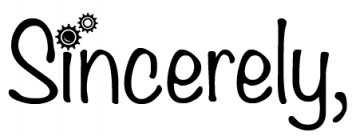
Mio Tomisawa Associate Academic Advisor
Posted on: April 8, 2021
Read More | No Comments

Type and hit Enter to search
How to write a good personal statement .
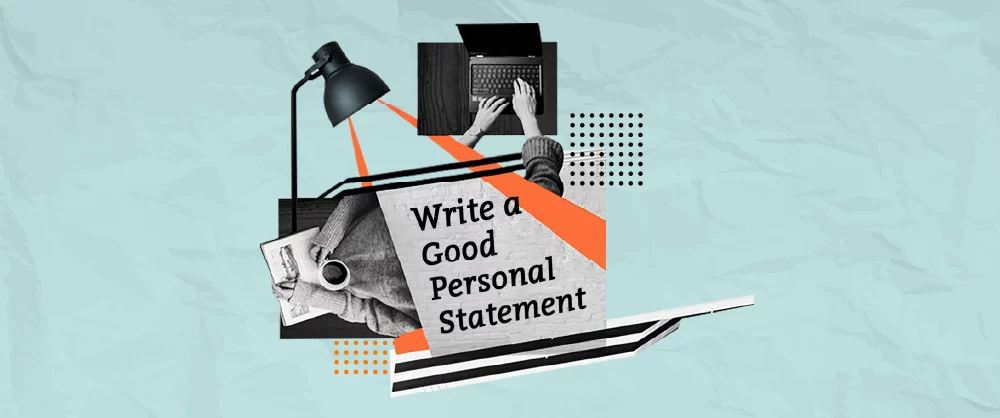
Table of Contents
Are you a study abroad aspirant? Are you also stuck at the step of writing a powerful personal statement? We understand your struggle, and we are here to help you. The constant spiral of what to mention and what not to mention in the personal statement can be exhausting, but this does not mean that you should give up. In this blog, we will share some of the best tips that will make your personal statement for university application stand out from the crowd.
What is a personal statement?
A personal statement can be understood as an essay about your talents, achievements, goals, experiences and other such important aspects of your life. These are submitted to universities or jobs along with the individual’s resume. The personal statement structure for jobs and universities differs in terms of length and content. Writing a personal statement for university means writing in detail about your life experiences and goals. However, these are not more than three or four paragraphs long. So, if you are wondering how to write a personal statement for university in detail and explain your entire life in 3-4 paragraphs, then we are here for you. However, we would advise you to check the specific requirements of the university you are applying to, and similarly write personal statement.
How to write personal statement?
One of the major questions that students often have is about how to start a personal statement. Whether you are writing a personal statement for a master’s or you are writing a personal statement for scholarship, here are some tips that can help you in exceling both. To get answers to all your questions, read the tips given below.
- Firstly, start with why you chose that particular university and course for your study abroad .
- Explain the relation between your aspirations and the course you have chosen.
- Write about how you are aware of what the course consists of, and if there is any specific subject you are interested in learning.
- Give an idea about the type of person you are – Mention any leadership roles, interests, hobbies, extracurricular activities and more.
- Write your skills and how you learned them. For example – “Playing chess for my college made me develop problem-solving skills”.
- Make sure you write a strong conclusion.
Qualities of a good personal statement
The boon and bane of personal statement is that there is no set structure of writing a personal statement. While you are free to write whatever you want, you also need to make sure it is perfect for you to get admission. There are some qualities that make a personal statement stand out from the crowd. Read them below:
- Highlights your core values: The personal statement must highlight the values, beliefs, and factors like what motivates you, what excites you, and so on. This can be any personal attribute or interest, such as beauty, humor, autonomy and more. Add instances or write in ways so that the officials can detect at least 4-5 of your core values.
- Vulnerability: The admission officers often like it when they feel like they know you. You must write a personal statement which is vulnerable and brings you closer to the admission officials. Here, the only thing you need to keep in mind is that you are a human, you will also make mistakes and that’s okay. Be honest about what scares you, challenges you, or even bothers you. It is okay to let your guard down sometimes, remember that!
- Use Active Voice: By using Active Voice in your personal statement, you will be able to explain your accomplishments better. It will also engage the reader in your personal statement and keep them interested.
- Uniqueness: It is very important for your personal statement to be unique to you. Make sure you add something that will be different from the crowd. Everyone will write that they are hardworking and dedicated but look for something more to add to your statement.
- Proofread: Once you have completed your personal statement, read it once, twice and even thrice. We are humans, and we often make mistakes while writing. However, these small mistakes can take a wrong toll on your personal statement, so make sure you submit a personal statement which has no mistakes. Things to check while proofreading your statement are spelling, grammar, relevancy, specificity, clear phrasing, lay-man language, and more.
What do the admission officials look for?
We all often wonder what exactly the admission officials look for. Since there is no set structure for personal statements, it gets confusing to understand what to write. Given below are some points that the admission officials look for:
- Motivation
- Commitment
- Teamwork
- Good Communication
- Leadership
- Research (in your field)
- Relevant Skills
Conclusion
Studying abroad and experiencing an exciting student life in a new country is always fun. However, the process of getting into your dream university is often overwhelming, especially when you need to write a personal statement. The above information given highlights some of the best tips on writing a personal statement. Try these tips given above, and if you still feel confused, you can always seek help from an organization that provides personal statement writing service. All the best!
We'd love to hear from you !
Share article, other articles.

Explore The 10 Largest Music Festival In USA
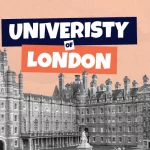
University Of London Acceptance Rate, Courses, Admissions 2024
Related posts.

Top Soft Skills For Students For Personal & Professional Growth

200+ Difficult Words with Meaning in English in 2024

Latest & Best Study Apps For Students To Achieve Success

Best 15 Passion Project Ideas For Students
- Career Exploration
- Arts, Communications, & Media
- Education, Nonprofit, & Public Health
- Business, Consulting, Finance, & Marketing
- Government, International Affairs, Law, & Public Policy
- Health Professions Advising
- Career Essentials Resources
- Graduate School
- Career Education Placements
- Grants Program
- Lumpkin Non-Profit Internships Program
- Elisabeth Luce Moore ’24 Internships in Asia
- Application Support
- Short Internship Projects (SHIPs)
- Fellowships for Undergraduates
- Fellowships for Graduates
- Class of 2025 Fellowship Planning
- Fellowships for International Students
- Civic Engagement
Writing a Personal Statement

Preparing to Write
Brainstorming, don't forget, sample prompts.
A personal statement is a narrative essay that connects your background, experiences, and goals to the mission, requirements, and desired outcomes of the specific opportunity you are seeking. It is a critical component in the selection process, whether the essay is for a competitive internship, a graduate fellowship, or admittance to a graduate school program. It gives the selection committee the best opportunity to get to know you, how you think and make decisions, ways in which past experiences have been significant or formative, and how you envision your future. Personal statements can be varied in form; some are given a specific prompt, while others are less structured. However, in general a personal statement should answer the following questions:
- Who are you?
- What are your goals?
- How does this specific program/opportunity help you achieve your goals?
- What is in the future?
A personal statement is not:
- A variation of your college admissions essay
- An academic/research paper
- A narrative version of your resume
- A creative writing piece (it can be creative, though)
- An essay about somebody else
Keep in mind that your statement is only a portion of the application and should be written with this in mind. Your entire application package will include some, possibly all, of the materials listed below. You will want to consider what these pieces of the application communicate about you. Your personal statement should aim to tie everything together and fill in or address any gaps. There will likely be some overlap but be sure not to be too repetitive.
- Personal Statement(s)
- Transcripts
- Letters of recommendations
- Sample of written work
- Research proposal
For a quick overview of personal statements, you might begin by watching this "5 Minute Fellowships" video!
If you are writing your first personal statement or working to improve upon an existing personal statement, the video below is a helpful, in-depth resource.
A large portion of your work towards completing a personal statement begins well before your first draft or even an outline. It is incredibly important to be sure you understand all of the rules and regulations around the statement. Things to consider before you begin writing:
- How many prompts? And what are they? It is important to know the basics so you can get your ideas in order. Some programs will require a general statement of interest and a focused supplementary or secondary statement closely aligned with the institution's goals.
- Are there formatting guidelines? Single or double spaced, margins, fonts, text sizes, etc. Our general guideline is to keep it simple.
- How do I submit my statement(s)? If uploading a document we highly suggest using a PDF as it will minimize the chances of accidental changes to formatting. Some programs may event ask you to copy and paste into a text box.
- When do I have to submit my statement(s)? Most are due at the time of application but some programs, especially medical schools, will ask for secondary statements a few months after you apply. In these instances be sure to complete them within two weeks, any longer is an indication that you aren't that interested in the institution.
Below is a second 5 Minute Fellowships video that can help you get started!
Before you start writing, take some time to reflect on your experiences and motivations as they relate to the programs to which you are applying. This will offer you a chance to organize your thoughts which will make the writing process much easier. Below are a list of questions to help you get started:
- What individuals, experiences or events have shaped your interest in this particular field?
- What has influenced your decision to apply to graduate school?
- How does this field align with your interests, strengths, and values?
- What distinguishes you from other applicants?
- What would you bring to this program/profession?
- What has prepared you for graduate study in this field? Consider your classes at Wellesley, research and work experience, including internships, summer jobs and volunteer work.
- Why are you interested in this particular institution or degree program?
- How is this program distinct from others?
- What do you hope to gain?
- What is motivating you to seek an advanced degree now?
- Where do you see yourself headed and how will this degree program help you get there?
For those applying to Medical School, if you need a committee letter for your application and are using the Medical Professions Advisory Committee you have already done a lot of heavy lifting through the 2017-2018 Applicant Information Form . Even if you aren't using MPAC the applicant information form is a great place to start.
Another great place to start is through talking out your ideas. You have a number of options both on and off campus, such as: Career Education advisors and mentors ( you can set up an appointment here ), major advisor, family, friends. If you are applying to a graduate program it is especially important to talk with a faculty member in the field. Remember to take good notes so you can refer to them later.
When you begin writing keep in mind that your essay is one of many in the application pool. This is not to say you should exaggerate your experiences to “stand out” but that you should focus on clear, concise writing. Also keep in mind that the readers are considering you not just as a potential student but a future colleague. Be sure to show them examples and experiences which demonstrate you are ready to begin their program.
It is important to remember that your personal statement will take time and energy to complete, so plan accordingly. Every application and statement should be seen as different from one another, even if they are all the same type of program. Each institution may teach you the same material but their delivery or focus will be slightly different.
In addition, remember:
- Be yourself: You aren’t good at being someone else
- Tragedy is not a requirement, reflection and depth are
- Research the institution or organization
- Proofread, proofread, proofread
- How to have your personal statement reviewed
The prompts below are from actual applications to a several types of programs. As you will notice many of them are VERY general in nature. This is why it is so important to do your research and reflect on your motivations. Although the prompts are similar in nature the resulting statements would be very different depending on the discipline and type of program, as well as your particular background and reasons for wanting to pursue this graduate degree.
- This statement should illustrate your academic background and experiences and explain why you would excel in the Department of Civil and Environmental Engineering (UMass Amherst - M.S. in Civil Engineering).
- Describe your academic and career objectives and how the Yale School of Forestry and Environmental Studies can help you achieve them. Include other considerations that explain why you seek admissions to the Yale School of Forestry and Environmental Studies and your interests in the environmental field (Yale - Master of Environmental Management).
- Please discuss your academic interests and goals. Include your current professional and research interests, as well as your long-range professional objectives. Please be as specific as possible about how your objectives can be met at Clark and do not exceed 800 words (Clark University - M.A. in International Development and Social Change).
- Write a 500- to 700-word statement that describes your work or research. Discuss how you came to focus on the medium, body of work, or academic area you wish to pursue at the graduate level. Also discuss future directions or goals for your work, and describe how the Master of Fine Arts in Studio (Printmedia) is particularly suited to your professional goals (School of the Art Institute of Chicago - MFA in Studio, Printmaking).
- Your statement should explain why you want to study economics at the graduate level. The statement is particularly important if there is something unusual about your background and preparation that you would like us to know about you (University of Texas at Austin - Ph.D in Economics).
- Your personal goal statement is an important part of the review process for our faculty members as they consider your application. They want to know about your background, work experience, plans for graduate study and professional career, qualifications that make you a strong candidate for the program, and any other relevant information (Indiana University Bloomington - M.S.Ed. in Secondary Education).
- Your autobiographical essay/personal statement is a narrative that outlines significant experiences in your life, including childhood experiences, study and work, your strengths and aspirations in the field of architecture, and why you want to come to the University of Oregon (University of Oregon - Master of Architecture).
- Personal history and diversity statement, in which you describe how your personal background informs your decision to pursue a graduate degree. You may refer to any educational, familial, cultural, economic or social experiences, challenges, community service, outreach activities, residency and citizenship, first-generation college status, or opportunities relevant to your academic journey; how your life experiences contribute to the social, intellectual or cultural diversity within a campus community and your chosen field; or how you might serve educationally underrepresented and underserved segments of society with your graduate education (U.C. Davis - M.A. in Linguistics).
- A Personal Statement specifying your past experiences, reasons for applying, and your areas of interest. It should explain your intellectual and personal goals, why you are interested in pursuing an interdisciplinary degree rather than a more traditional disciplinary one, and how this degree fits into your intellectual and personal future (Rutgers University - Ph.D in Women’s and Gender Studies).
- Your application requires a written statement to uploaded into your application and is a critical component of your application for admission. This is your opportunity to tell us what excites you about the field of library and information science, and what problems you want to help solve in this field. Please also tell us how your prior experiences have prepared you for this next step toward your career goals and how this program will help you achieve them (University of North Carolina Chapel Hill - Master of Science in Library Science).
- After watching the video, please describe what strengths and preferences as a learner you have that will facilitate your success in this innovative curriculum. What challenges in our curriculum do you anticipate and what strategies might you use to address these challenges? (MGH Institute of Health Professions PT - They recently redesigned their curriculum)
- Your personal goal statement should briefly describe how you view the future of the field, what your goals are to be part of that future, and what brought you to pursue an advanced education degree in your chosen field. You may include any other information that you feel might be useful. (Northeastern PT)
- Personal Statement: In 500 words or less, describe a meaningful educational experience that affected your professional goals and growth and explain how it impacted you. The educational experience does not need to be related to this degree. Focus on the educational experience and not why you think you would be a good professional in this field. (Simmons PT)
- Personal Statement (500 word minimum): State your reasons for seeking admission to this program at this institution. Include your professional goals, why you want to pursue a career in this field and how admission to this program will assist you in accomplishing those goals. (Regis College Nursing)
- “Use the space provided to explain why you want to go to this type of program.” (AMCAS)
- Address the following three questions(Though there is no set limit, most statements are 1–2 pages, single-spaced.): What are your reasons for pursuing this degree? Why do you wish to pursue your degree at this institution? How do you intend to leverage your degree in a career of this field? (Boston University MPH)
- Please submit a personal statement/statement of purpose of no more than 500 words for the department/degree of choice. Professional degree essays require a clear understanding of the _______ field and how you hope to work within the field. Be sure to proofread your personal statement carefully for spelling and grammar. In your statement, be sure to address the following: what interests you in the field of _____ what interests you in a specific degree program and department at this institution and what interests you in a particular certificate (if applicable). Please also describe how you hope to use your ________ training to help you achieve your career goals. (Columbia PhD in Public Health - Epidemiology)
- Because each Home Program requires significant original research activities in fulfillment of the requirements for the degree, we are interested in obtaining as much information as possible about your previous research experiences. Those who already have such experience are in a better position to know whether they are truly interested in performing ______ research as part of a graduate program. Please include specific information about your research experience in your Statement of Purpose. You may also use the Statement to amplify your comments about your choice of Home Program(s), and how your past experiences and current interests are related to your choice. Personal Statements should not exceed two pages in length (single spaced). Make sure to set your computer to Western European or other English-language setting. We cannot guarantee the ability to access your statement if it is submitted in other fonts. (Stanford Biosciences PhD)
- Your statement of purpose should describe succinctly your reasons for applying to the Department of ____ at ___ University. It would be helpful to include what you have done to prepare for this degree program. Please describe your research interests, past research experience, future career plans and other details of your background and interests that will allow us to evaluate your ability to thrive in our program. If you have interests that align with a specific faculty member, you may state this in your application. Your statement of purpose should not exceed two pages in length (single spaced). (Stanford Bioengineering PhD)
- Statement of purpose (Up to one page or 1,000 words): Rather than a research proposal, you should provide a statement of purpose. Your statement should be written in English and explain your motivation for applying for the course at this institution and your relevant experience and education. Please provide an indication of the area of your proposed research and supervisor(s) in your statement. This will be assessed for the coherence of the statement; evidence of motivation for and understanding of the proposed area of study; the ability to present a reasoned case in English; and commitment to the subject. (Oxford Inorganic Chemistry - DPhil)
Related resources

- What is a Career Community?
- Exploration & Discovery
- Education, Cultures & Human Services
- Multimedia, Marketing, Communication & Creative Arts
- Policy, Law & Public Service
- Management, Consulting, Sales & Finance
- Life & Physical Sciences
- Environment & Sustainability
- Engineering
- Computing, Information & Analytics
- What is an Affinity Community?
- International Students
- Students of Color
- Veteran Students
- NCAA Student Athletes
- Students with Neurodiversity & Dis/ability
- Adult Students
- First Generation Students
- Exploring Careers
- Exploring Graduate School
- Internships
- Interview Prep
- Research, Volunteering, & Fellowships
- Resume Prep
- Skill Development
- Contact + Team
Personal Statement: Top 10 Rules and Pitfalls
- Share This: Share Personal Statement: Top 10 Rules and Pitfalls on Facebook Share Personal Statement: Top 10 Rules and Pitfalls on LinkedIn Share Personal Statement: Top 10 Rules and Pitfalls on X
From Top 10 Rules and Pitfalls // Purdue Writing Lab
Writing the personal statement: top 10 rules.
- Strive for depth rather than breadth. Narrow focus to one or two key themes, ideas or experiences
- Try to tell the reader something that no other applicant will be able to say
- Provide the reader with insight into what drives you
- Be yourself, not the ‘ideal’ applicant
- Get creative and imaginative in the opening remarks, but make sure it’s something that no one else could write
- Address the school’s unique features that interest you
- Focus on the affirmative in the personal statement; consider an addendum to explain deficiencies or blemishes
- Evaluate experiences, rather than describe them
- Proofread carefully for grammar, syntax, punctuation, word usage, and style
- Use readable fonts, typeface, and conventional spacing and margins
WRITING THE PERSONAL STATEMENT: TOP 10 PITFALLS
- Do not submit an expository resume; avoid repeating information found elsewhere on the application
- Do not use the same personal statement for each application. Generic statements are often obvious
- Do not preach to your reader. You can express opinions, but do not come across as fanatical or extreme
- Do not talk about money as a motivator
- Do not discuss systemic and social injustices simply as complaints, but as a relevant source of motivation for your overall goals and intended studies
- Do not remind the school of its rankings or tell them how good they are
- “Allow me to introduce myself. My name is…”
- “This question asks me to discuss…”
- “I would like to thank the admissions committee for considering my application.”
- “It is my sincere hope that you will grant me the opportunity to attend your fine school.”
- “In sum, there are three reasons why you should admit me…”
- Do not use unconventional and gimmicky formats and packages
- Do not submit supplemental materials unless they are requested
- Do not get the name of the school wrong
- Do not incorporate technical language or very uncommon words
Stewart, Mark Alan. Perfect Personal Statements. New York: Simon & Schuster Macmillan, 1996.
Language selection
- Français fr
Schedule A: Background / Declaration Form (IMM 5669)
There are 2 versions of this form:
- a digital version in the Permanent Residence Portal
- a PDF version for paper applications
Check the instructions for your program to find out which version to use.
Read these instructions if you need help filling out any sections of this form in the Permanent Residence Portal.
If you cannot apply online and require accommodations, including for a disability , you may request an alternative format of this form and the application package. For more information, consult the instruction guide for your program.
Schedule A – Background/Declaration (IMM 5669)
For refugee claimants in Canada: Only family members included in your application for refugee protection who are with you in Canada must be included using this form.
Personal details
Family and given names.
Family name is also known as last name or surname .
Given names are also known as first name and middle name. Do not use initials.
Enter your names exactly as they appear on your passport, travel document or identity document.
Questionnaire
If you answered “ Yes ” to one or more of these questions, you must enter an explanation in the details field.
If you didn’t earn a diploma, leave the “Type of certificate or diploma issued” field blank.
Personal history
Important: do not leave any gaps in time.
If you don’t account for all time periods, it may delay the processing of your application.
Personal history - Activity
Examples of activity types
- employment (please specify)
- educational activity
Personal history - Status in country or territory
Examples of status
- visitor visa
Exception: If you have not worked in the past 10 years (for example, you’re retired), you must provide details of your personal history since the age of 18. The resume or Curriculum Vitae (CV) that you provide with your application will help verify the information in this question.
Membership and association with organizations
Examples of organizations
- political organizations
- social organizations
- youth or student organizations
- trade unions
- professional associations
Don’t use abbreviations.
Government positions
Examples of government positions
- civil servant
- police officer
- employee in a security organization
Military and paramilitary service
Write out addresses in full without using any abbreviations. Use the apartment or unit number, if this applies.
Example: 999 Family Street, Unit #3, Ottawa, Ontario, Canada, K3J 9T5
Authority to disclose personal information
Declaration of applicant.
Read all of the statements in all sections carefully and type your full name into the blue field (this is your digital signature).
By signing, you certify that you fully understand the questions asked, and that the information you provided is complete, truthful, and correct.
Download the form
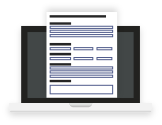
Schedule A: Background / Declaration Form [IMM 5669] (PDF, 0.2 MB)
Complete the form
This form must be completed by:
- you, the principal applicant;
- your spouse or common-law partner (whether accompanying you to Canada or not), and
- your dependent children aged 18 years or older (whether accompanying you to Canada or not).
For refugee claimants in Canada: Only family members included in your application for refugee protection who are with you in Canada must complete this form.
Enter your full family name (surname or last name) exactly as it is shown on your passport, travel or identity document.
Enter all of your given name(s) (first, second or more) exactly as they are shown on your passport, travel or identity document. Do not use initials.
Enter your name in your native language or script (if applicable).
For example: Arabic, Cyrillic, Chinese, Farsi, Korean, Japanese characters or Chinese commercial/telegraphic code.
Enter your date of birth. If you do not know your complete date of birth, please use an “*” (asterisk) to fill in the spaces for the unknown year, month or day. For example, if the day and month of your date of birth is unknown you could enter 1964/*/*.
Provide your father’s personal details including their:
- family name (surname or last name),
- given name(s),
- date of birth,
- town or city of birth,
- country of birth,
- date of death (if applicable).
Provide your mother’s personal details including their:
Answer each question by checking the appropriate box.
If you answered “ Yes ” to one or more of these questions, you must explain what happened in the space provided. If you need more space, attach a separate sheet of paper.
For questions 7-12, when answering:
- Do not use abbreviations
- Do not leave gaps in time
If a question doesn’t apply to you, write “N/A” in the question.
If you need more space, attach a separate sheet of paper.
Important information: Processing will be delayed if you do not account for all periods of time.
Enter the number of years of formal education you have completed at each of the levels indicated.
Provide the details about each secondary and post-secondary educational institution you attended, including the:
- period of time that you attended the institution,
- name of the institution,
- city and country,
- type of certificate or diploma issued, and
- field of study.
If no diploma was issued, write “ N/A ”. If you need more space, attach a separate sheet of paper.
Provide the details of your personal history since the age of 18, or the past 10 years , whichever is most recent.
Start with the most recent information.
If you were working:
- under “Activity”, enter your occupation or job title.
- make sure you provide a specific job title
- If your job title is not clear, provide a brief list of your duties
If you were not working:
- Explain what you were doing (for example: unemployed, studying, travelling, retired, in detention, etc.)
If you were outside your country of nationality, enter your status of the country you were in.
Important information: Please ensure that you do not leave any gaps in time. Failure to account for all time periods will result in a delay in the processing of your application.
If you were or still are a member of an association or organizing, enter the names here.
This includes:
- political organizations,
- social organizations,
- youth or student organizations,
- trade unions, and
- professional associations.
If you were not a member of an association or organization, do not write “not applicable”. Instead, enter: “I have never been a member of an organization or association”.
Enter any government positions you have held in the past such as:
- Civil servant;
- Police officer;
- Employee in a security organization;
Enter “NONE” in the box if you have not been a member of an association or organization.
- the name of the country and the level of jurisdiction (examples: national, regional or municipal),
- the name of the department or the branch you worked for, and
- activities and/or positions that you held.
Note: Do not use abbreviations.
Give complete details about your military or paramilitary service (if applicable). Provide the details of your military or paramilitary service for each of the countries whose armed forces you served in. If you were not in any military or paramilitary service, write “NONE”. Do not leave gaps in time.
Enter the residential addresses where you have lived since your 18th birthday or the past 10 years, whichever is most recent, complete with the postal code. Do not use P.O. Box addresses.
Authority to disclose personal information Declaration of applicant
Read all of the statements in all sections carefully. Sign and date in the boxes provided. By signing, you certify that you fully understand the questions asked, and that the information you have provided is complete, truthful, and correct. If you do not sign and date, the application will be returned to you.
Note: The bottom section of Schedule A should not be completed at this time.
Page details

IMAGES
COMMENTS
Writing your personal statement. When putting together your application for graduate school, one of the supporting documents your program may require as part of the supplementary information form is a personal statement. A personal statement is your opportunity to explain more about who you are and why you belong in the program to which you ...
personal statement could look like. This booklet also includes examples of several dif. ent types of personal statements. The personal statement may be a narrative with an in. roduction, a body and a conclusion. This type of statement tells a story, hence narrative, which may be easy to write since most stories c.
The length of a personal statement varies depending on the university, but generally, the average length for an undergraduate application is between 300-600 words, around one side of A4 paper or a maximum of 47 lines. Certain postgraduate programmes may require a 1000-word personal statement, but this will be clearly specified.
Personal Statement Example #2 Home for me is the small, picturesque city of Victoria, British Columbia. Growing up, my relative liberty and affluence were largely unapparent to me. My concepts of inequality and injustice informed by trivial unfairness such as when my twin sister received the larger slice of cake. Despite my comfortable ...
Use a single, strong sentence to mention the most relevant aspects of your personality and interests in the role or company. Related: How To Write an Introduction About Yourself. 2. Expand on relevant skills, interests and experiences. The body of your statement lets you share more about your relevant skills, interests and experiences.
Whether you are writing a Personal Statement, Letter of Intent, Biographical Sketch, or other type of application for a graduate program, professional school, fellowship/scholarship/award, or employment opportunity, CaPS can assist you. Before taking advantage of the resources below, we strongly recommend you write the first draft on your own, according to the specifications provided by the ...
9. Indicate what your goals are once you've graduated from the program. 10. Revise, revise, revise! Check for problems with the structure and flow of your statement. Look for awkward phrases, jarring transitions, ambiguous statements and, of course, grammar and spelling errors. Get feedback from as many people as possible.
d clarity are all very important.Lastly, you may want to have a conclusion paragraph where you can summarize the key points of your personal statement and re. nd the reader of your strengths. You can also mention here what your goals and ambitions are, and how your studie. will fit into your fu.
And remember the golden rule of writing: revise! Never send out your first draft. Once you've got a personal statement written, give it a few days, then return to it and make some edits. Show your draft to a trusted friend or loved one for feedback. This means you'll need to leave time for revision, so don't leave your statement til the last ...
How to write a personal statement. 10 Tips for Writing a Strong Personal Statement. Personal Statement FAQ. Support resources for writing a strong personal statement. Students & New Grads. Search Services & Events Calendar; Experience York LOGIN: Online System; Job Postings; On-Campus Jobs;
Writing Personal Statements writingcentre.stu. sonal Statementswritingcentre.stu.caPurposeMost applications for grad school or post-graduate programs (e.g. BEd or BSW) require a personal statement, which may also be called. a letter of intent or a statement of purpose. The goal of this statement is to give the reader a better sense of who you ...
Find a way to answer the questions in interesting and compelling ways by pulling from past experiences that are unique to you. Use critical reflection. When revisiting your personal experiences, think about what happened and note things that you would do differently or that you were happy about in the end. Provide specific examples.
Write your personal statement. Personal statements are part of the application package to many professional and graduate school programs. Sometimes they are responses to a specific question, but often the questions are open ended. Although they vary in length, 500 words is a common length. They are also known as letter of intent, personal essay ...
ake a brief statement to indicate the theme for each section or que. tion. Use the university's instructions as the skeleton for your outline. Each paragraph shou. SGW: 1455 De Maisonneuve Blvd. W., H 745, 514-848-2424 ext. 3921 LOY 7141 Sherbrooke St. W., AD 103, 514-848-2424 ext. 3555. UDENT LEARNING SERVICES STUDENT SUCCESS CENTRE CONCORDIA ...
Personal statements are a part of the application package to many professional and graduate school programs. Sometimes they respond to a specific question, but often the questions are open-ended and vary in length requirements ranging from as little as 250 words to more than two pages. They are also called letters of intent, personal essays, statements of purpose, or application essays.
ool programs. They can take the form of essays, letters, or paragraphs of varying lengths. In personal statements, applicants are typically asked to explain their interes. the program, motivation for applying, and how their backgro. relates to the program. What information should be included in a personal stat.
It means that you will face a limit of up to 4,000 characters. In practice, it will result in a personal statement of 500-1000 words, considering that you are implementing an A4 paper. However, if you are planning to study Sociology, Psychology, or Literature, your personal statement can be up to 2-3 pages in length (double-spaced).
The personal statement should go beyond what has already been revealed in your application. The most important thing to remember about writing personal statements is that they should portray your uniqueness through highlighting and reflecting on your most pertinent experiences. HOW TO PREPARE. Start early and research.
Personal Statement Tips on writing a compelling personal statement . Your Personal Statement is an opportunity to write from your heart and tell the story the other application materials don't. It is also used to evaluate your writing capabilities, style, and ability to follow directions. Please use the format and sample template below when ...
The Centre for Writing and Scholarly Communication offers additional writing resources, workshops and consultations to help you prepare a strong personal statement. It's a great idea to start planning and thinking about 2nd year placement as early as possible, as it can be an important process that shapes your next few years of study.
How to Write a personal statement A Comprehensive Video Course for Students. A seven-part online course designed to gives students and counselors everything they need to figure out (or help someone else figure out) how to write a personal statement for the Common App. Watch the Q&A sessions after each session where I answer important questions about the personal statement-writing process and ...
Writing a personal statement for university means writing in detail about your life experiences and goals. However, these are not more than three or four paragraphs long. So, if you are wondering how to write a personal statement for university in detail and explain your entire life in 3-4 paragraphs, then we are here for you.
How to write a personal psychology statement. Here are some steps to help you write your statement: 1. Read the instructions thoroughly. Knowing what your audience wants from your essay is the first step in producing an excellent personal statement. Take the time to read all the essay directions for the schools to which you intend to apply.
Use a single, strong sentence to mention the most relevant aspects of your personality and interests in the role or company. Related: How To Write an Introduction About Yourself. 2. Expand on relevant skills, interests and experiences. The body of your statement lets you share more about your relevant skills, interests and experiences.
A personal statement is a narrative essay that connects your background, experiences, and goals to the mission, requirements, and desired outcomes of the specific opportunity you are seeking. It is a critical component in the selection process, whether the essay is for a competitive internship, a graduate fellowship, or admittance to a graduate school program.
WRITING THE PERSONAL STATEMENT: TOP 10 PITFALLS. Do not submit an expository resume; avoid repeating information found elsewhere on the application; Do not use the same personal statement for each application. Generic statements are often obvious; Do not preach to your reader. You can express opinions, but do not come across as fanatical or extreme
Complete the form Schedule A - Background/Declaration (IMM 5669) This form must be completed by: you, the principal applicant; your spouse or common-law partner (whether accompanying you to Canada or not), and your dependent children aged 18 years or older (whether accompanying you to Canada or not).
Welcome to St. John AME Sunday Morning Service August 25th,2024